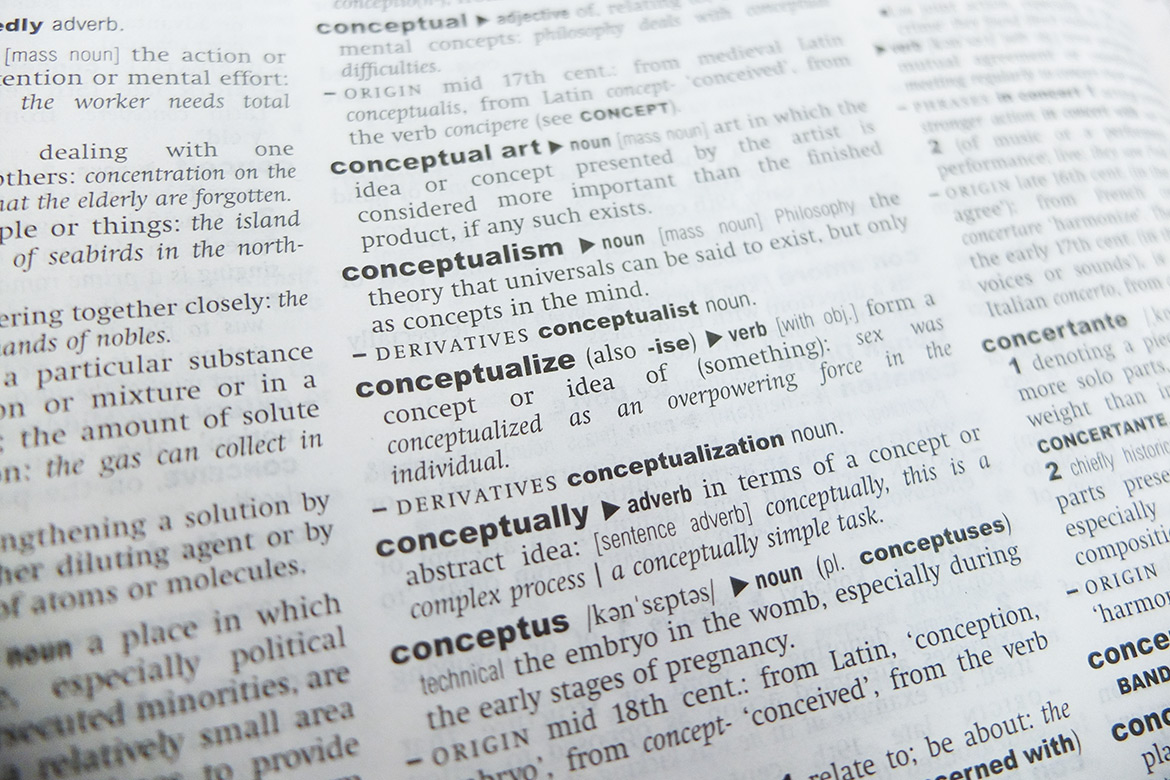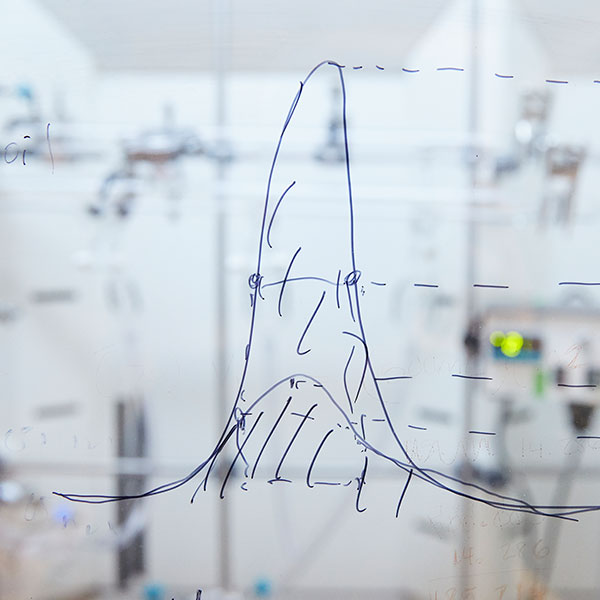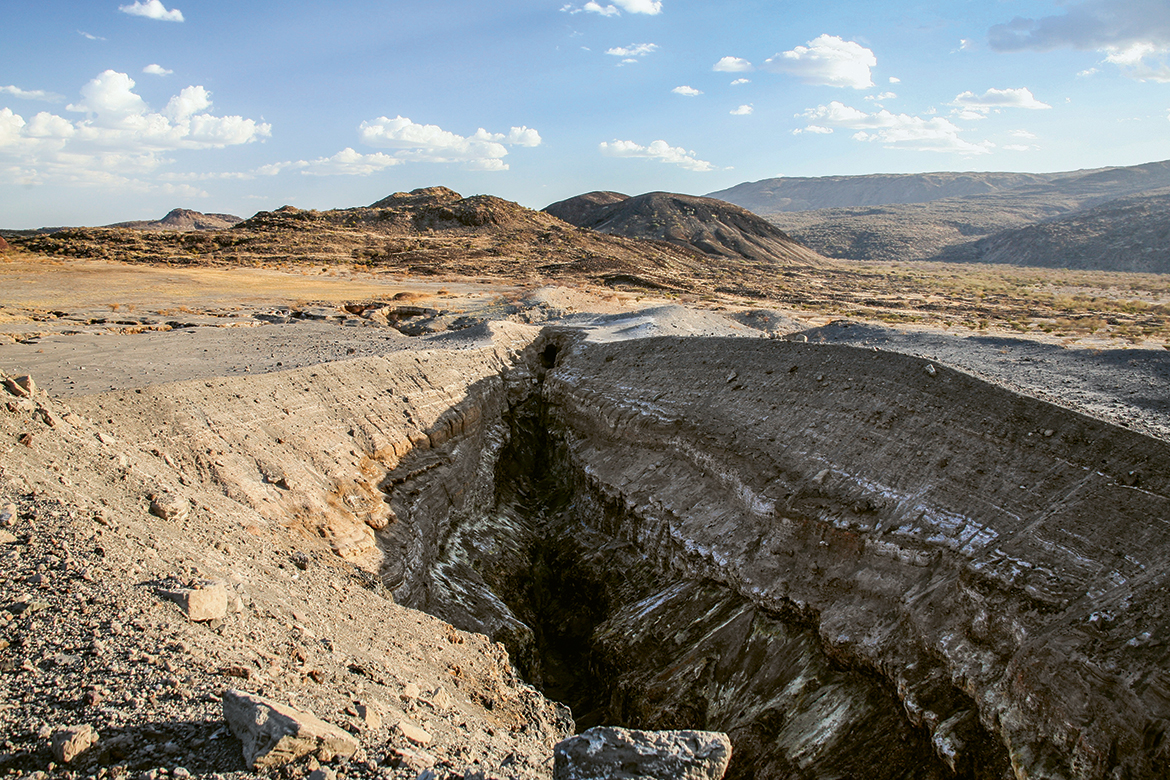Feature: Driven by personal concerns
The potential pitfalls of the subjective turn
Incorporating one’s personal experiences in scholarly enquiry was originally made acceptable by feminist researchers. But it also occurs in medical research today. We look at the possible pitfalls to determine how researchers can avoid being accused of bias.

Self-analysis – or autoethnography – can help researchers to recognise their own impact on their research results, whether or not they’re personally affected by their topic. | Photo: Angelika Annen, Styling / Hair & Make-up: Amanda Brooke, Model: Iva/Option Model Agency
For some years now, it’s been acceptable to incorporate aspects of personal involvement in one’s own research. Brigitte Boenisch-Brednich is an anthropologist who specialises in ethnographic research methods at Te Herenga Waka – Victoria University of Wellington in New Zealand. She speaks of a ‘subjective turn’ in this regard. “It started with the feminism of the 1970s and ’80s, when the personal became political, and people started taking the experiences of ordinary people seriously”, she says. “This led to personally motivated research becoming accepted in science and scholarship”. In the social sciences, humanities and medicine, many researchers are themselves affected by their own research.
Access to intimate knowledge
“Personal involvement can bring new insights if it’s acknowledged and analysed”, says Boenisch-Brednich. Several members of her own research group are working on projects that are motivated by specifically personal concerns. For example, there’s Naz Karim, a researcher from Afghanistan, who experienced violence at the hands of the Taliban herself and is now – several years later – investigating Taliban violence against women. Her research also involved interviewing affected women in Afghanistan, and it was naturally less difficult for her to gain access to these women and to win their trust than may have been the case for someone else. If a white male had tried to do this, many of the women would probably have refused to speak at all, or they simply wouldn’t have been allowed to do so.
Karim’s research also involved analysing her own reactions, for her work triggered a recurrence of awful nightmares about what she’d herself experienced. But what’s fascinating is how Karim’s own involvement also helped her to recognise common cultural elements in what she and her interviewees had undergone. For example, many of the women affected described their anxiety as a spirit that afflicts them, sitting on their chest.
Another project in Boenisch-Brednich’s research group is utilising the personal even more directly. A woman researcher suffering from the eating disorder bulimia is engaged in an intimate process of self-reflection to analyse the strategies that she uses to conceal her illness. These include preparing meticulously for her doctor’s appointments, deciding what lies to tell and to whom, and taking drugs and other medication to keep going at all. “This enables her to complement the current state of research with a toolbox of tricks and manipulations that she and other bulimic women know how to use, both against themselves and to fool their environment”, says Boenisch-Brednich. This knowledge is extremely useful to doctors and therapists and may never have emerged without this researcher’s self-analysis.
The method used by these researchers to describe and analyse their own perspectives and experiences has a name: autoethnography. It was devised specifically for topics to which researchers have a direct relationship. Autoethnographic texts do not read like traditional scholarly publications. They are in narrative form and are written in the first person. If such work is done well, it can combine personal experience with cultural, social or political contexts to generate new knowledge.
Self-reflection for everyone
Ahmed Ajil is a criminologist who is currently conducting research into terrorism at the Universities of Lucerne and Lausanne – or, as he puts it in more cautious terms, into “political and ideological violence”. He uses autoethnography to complement his quantitative and qualitative analyses. He is interested in how terrorist organisations mobilise their members. To this end he has been conducting interviews, both with men who have been convicted of terrorist offences in Switzerland, and with members of violent organisations in Lebanon. As Ajil’s name suggests, he has a Muslim background too, and Arabic is his mother tongue. By employing autoethnography and by comparing his work with that of his fellow researchers whose origins are mostly Christian and Western, he can analyse the impact on his research of his own linguistic and cultural proximity to his interviewees.
Ajil concluded that this proximity helps him to build trust and to achieve a better understanding of the nuances in what people tell him. Sometimes his background has even been decisive in enabling him to conduct an interview. But he has also acknowledged that his own cultural background can prove detrimental to his work – such as if his interviewee simply assumes a common understanding of certain things and accordingly leaves them unsaid. “What’s important is that I recognise these blind spots and that I react by asking more explicit questions”, says Ajil. Overall, he thinks it would be good if more of his research colleagues engaged in systematic reflection on their role and on the possible unintended influence that their own background exerts on their work. But far from everyone is willing to do it. “If they don’t, it can negatively affect their research”.
When researchers analyse their own role, they talk about their ‘positionality’. For example, Boenisch-Brednich was conducting research into academic migration, but realised during the process that her research design was based too closely on her own perspective. She herself emigrated when she was offered a well-paid permanent position as a professor. She didn’t have to flit from country to country, taking one temporary job after another, which is the fate of many postdocs. And as a German citizen, she also has a passport that makes travelling easy. The Kazakh and Belarusian academics she has interviewed were faced with a very different situation. “At first, I didn’t even consider the career problems that this caused them”, she says. But then she engaged in critical reflection of her own positionality and adapted and expanded her list of questions accordingly.
Wiebke Wiesigel is an anthropologist at the University of Neuchâtel and a co-president of the CRED Commission (Ethical and Deontological Think Tank). She believes that the social sciences in particular have a highly developed awareness of the need to reflect on one’s own role in research, not least because many topics are connected to power relations. “The aim of the social sciences is precisely to take a critical look at society to reinterpret what we might consider ‘normal’”. Researchers must be able to advocate seriously for the knowledge that is thereby generated. This means both reflecting on their own relationship to the research topic in question and displaying a readiness to make this relationship transparent.
Trustworthy among believers
So far so good, you might think. But this process of self-reflection doesn’t necessarily mean that the research knowledge gained is credible to the general public. In fact, studies have proven that when researchers are personally involved, it can be interpreted either positively or negatively, depending on whatever was the prevailing opinion among the populace. For example, a study on LGBTQ+ issues and vegan nutrition that was conducted back in 2021 showed that laypeople perceived as more trustworthy those researchers who were personally affected, also finding their results more credible – with the caveat that this applied among those laypeople who already had a positive attitude towards the research topic. But those who were already critical of vegan nutrition from the outset merely became even more critical than before.
“We’re all wired this way. We want to have our view of the world confirmed”, says Marlene Altenmüller, the lead author of the abovementioned study and a professor at the Leibniz Institute of Psychology in Trier in Germany. Her research is focused on the acceptance of science by the public at large. “The public’s attitude to research results – whether they react positively or negatively to them – depends on how those results match their own views. And this effect is heightened in each case when researchers are personally involved”.
An American study has meanwhile taken a closer look at what lies behind this way of thinking. The people interviewed in the study variously deemed the researchers in question to possess greater expertise on the one hand, or a greater sense of self-interest on the other. In the former case, people found the research to be more trustworthy and legitimate, while in the latter case, they had a heightened suspicion of bias. Depending on one’s own perspective, one or the other of these attributions will then be dominant.
As it happens, the public reacts similarly when science becomes political. This has occurred frequently in climate research, gender equality, education and measures against Covid, for example. A recent study by Altenmüller has shown that the public is in these matters highly influenced by the attitudes they expect from researchers: If researchers are perceived to be left-wing and liberal, then right-wing, conservative people are more sceptical of them. But conversely, left-wing, liberal people are more sceptical when they perceive researchers to be conservative in their attitudes.
Credible despite politics
But what can we learn from this? What must researchers do to become credible? “There’s no easy answer to it”, says Altenmüller. Surveys have repeatedly shown an interesting degree of ambivalence. People often value the personal input of researchers and also want them to speak out on political issues. For example, they’d like researchers to take a stand when evidence is being misrepresented. But at the same time, they don’t want scientists to play politics – they don’t want them to take sides in favour of certain political measures. This is a fine line to tread.
Regardless of public opinion, there have hardly been any studies about the degree to which people trust the work of researchers who are personally or politically involved. “This type of research about research is extremely time-consuming and is still in its infancy. But it’s gaining more and more momentum”, says Altenmüller. But there’s at least one result from a study of this kind. A research team in the USA investigated almost 200 psychological studies whose results contained a political value judgement. Then they investigated whether or not later studies confirmed these results less frequently. The answer was clear: No.




